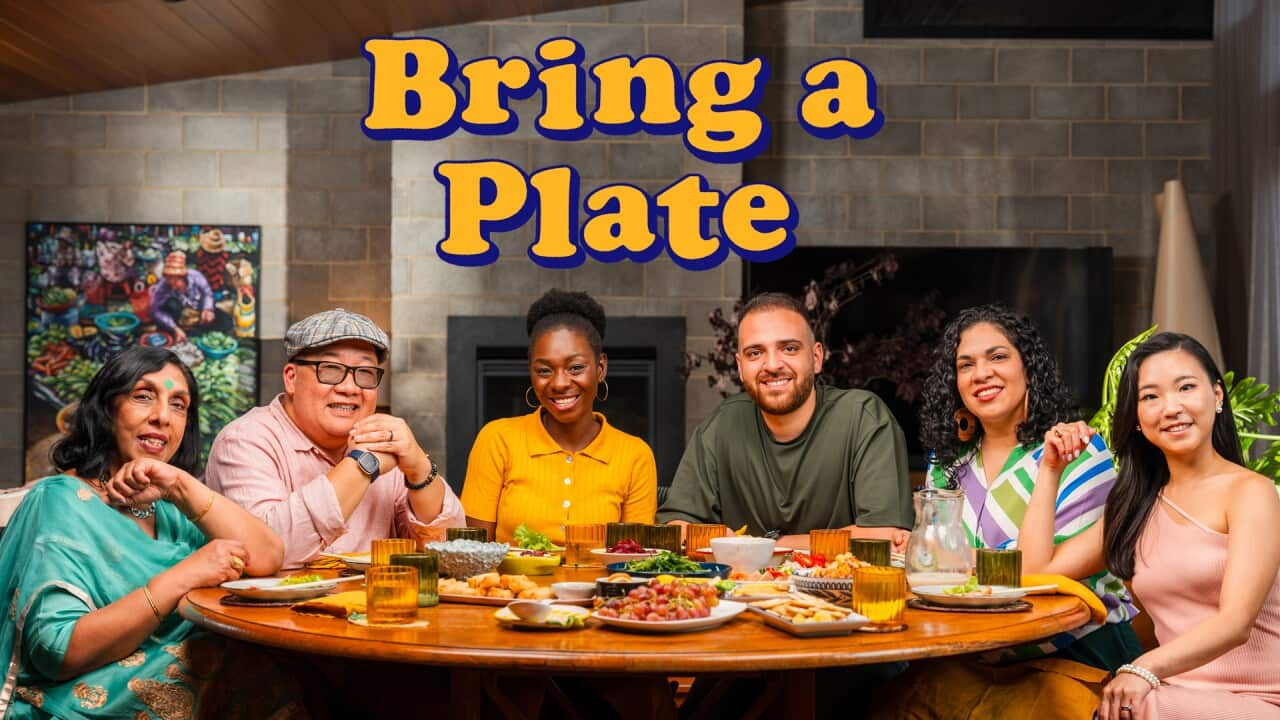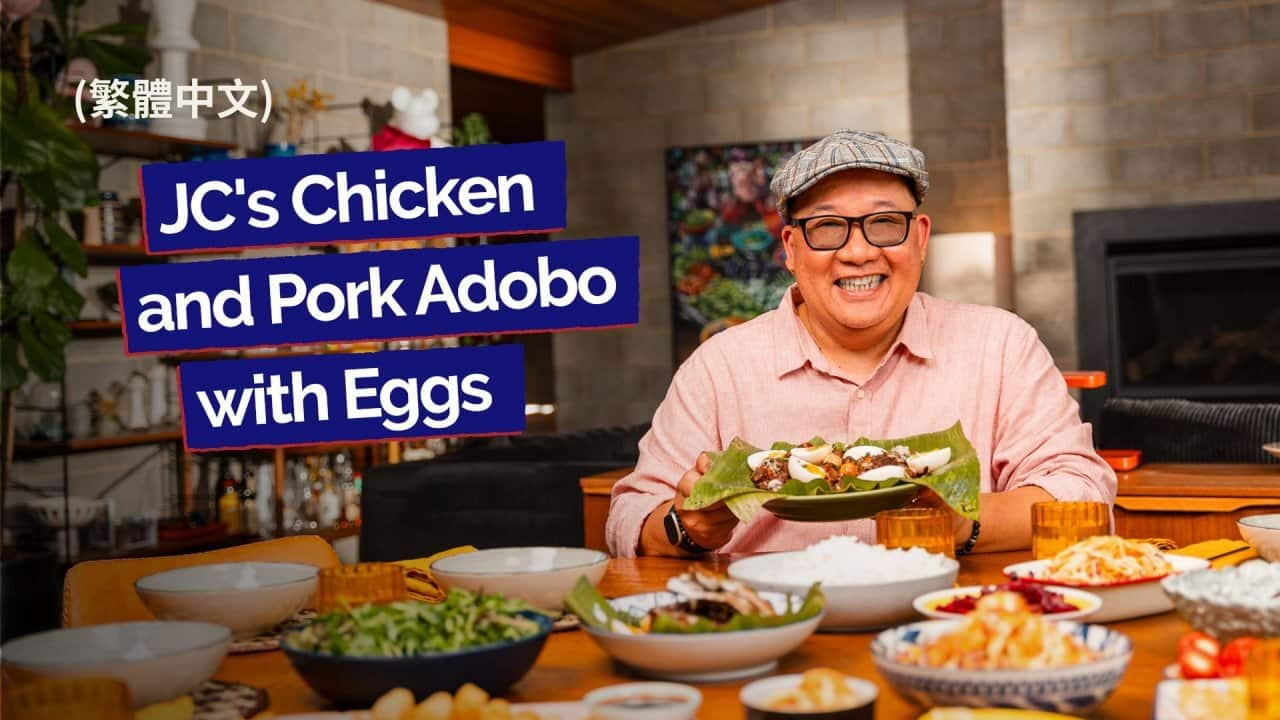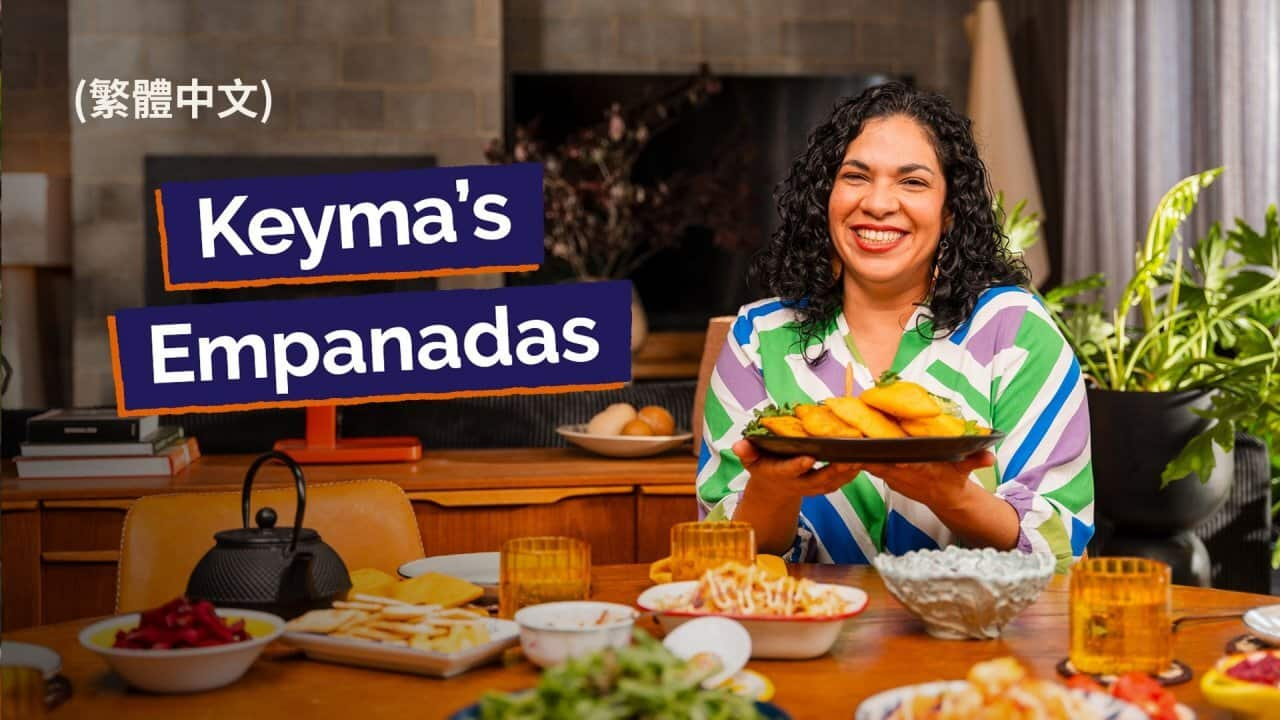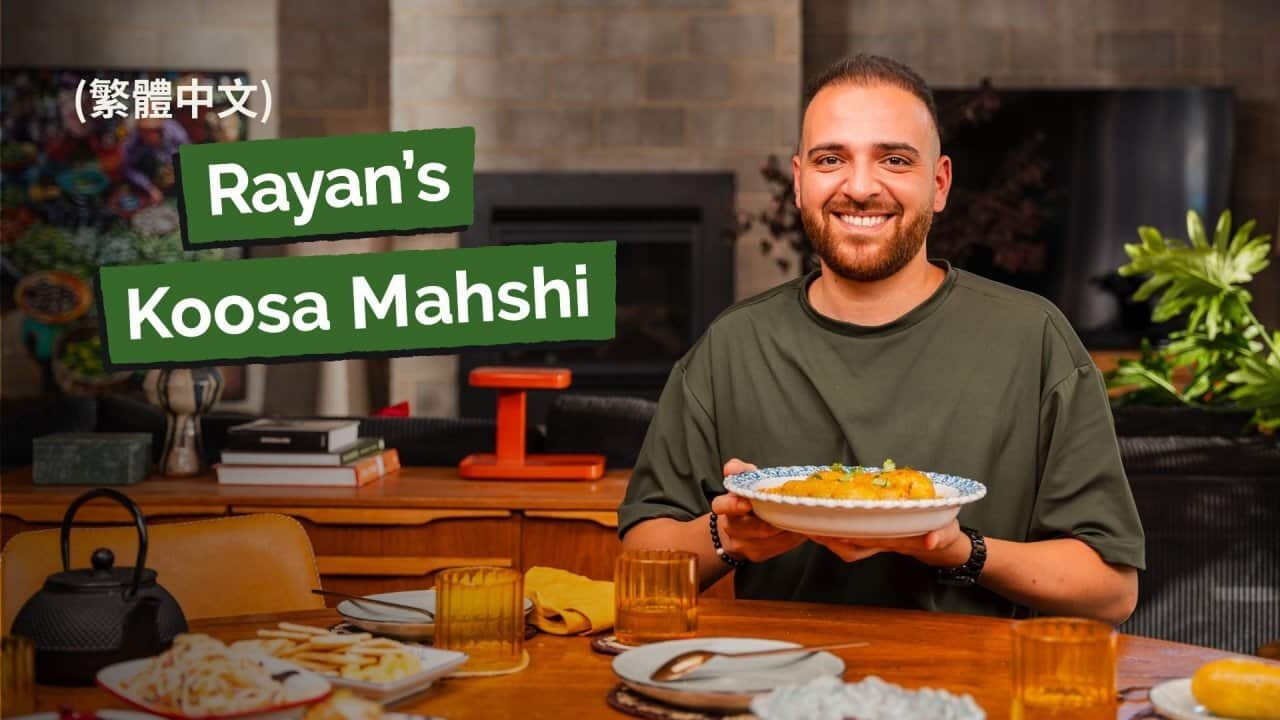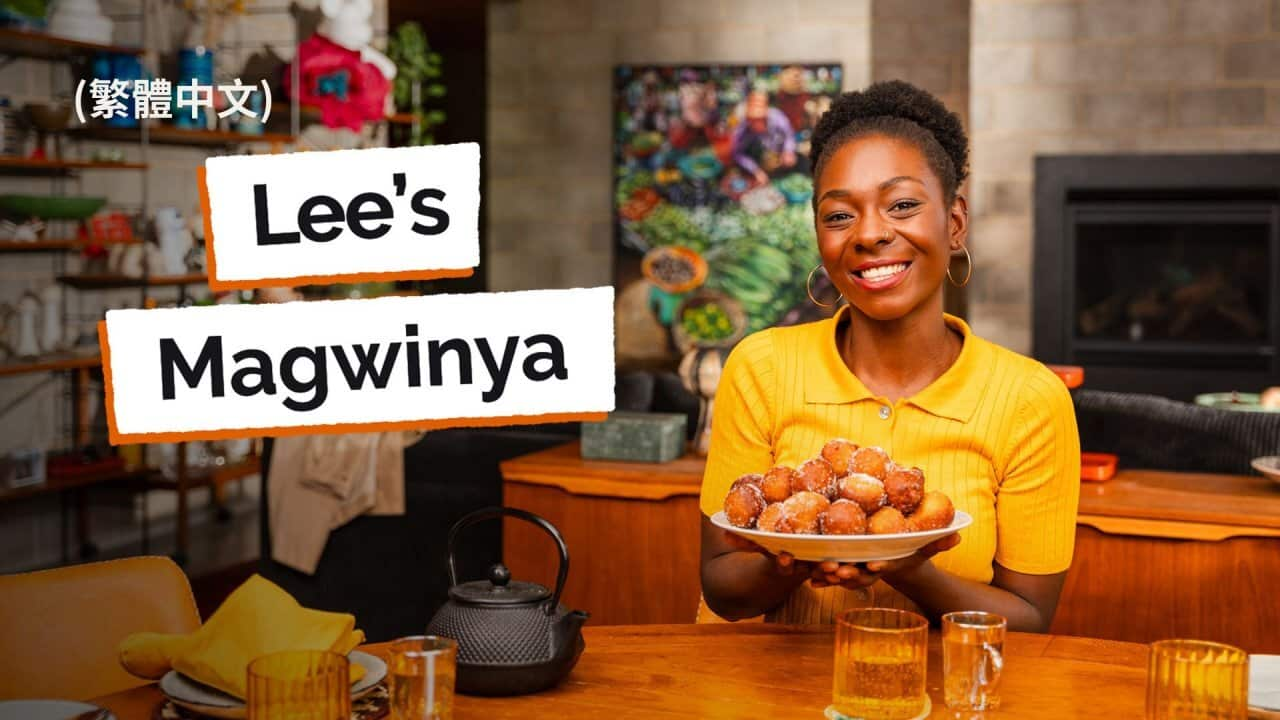和六位賓客一邊品嘗美食,一邊學習英語,也學習被邀請帶備食物分享時怎樣介紹你的傳統菜色。
Links:
- 在收看 Bring a Plate。
Transcript
Narrator: What does it mean if you are asked to bring a plate? An empty plate?
[crickets chirping]
Oh, I get it. Bring a plate. In Australia, bring a plate means to bring a plate of food to share. In this series, we'll learn about the English language. So next time you're asked to bring a plate, you'll feel more confident in sharing your dish with others and asking about theirs.
It's all about coming together.
Welcome to "Bring A Plate".
JC: I remember we were at school once, and this was, I think, my first week at school. And I thought I already knew how to speak English, but obviously it wasn't the same English. These girls said to me, "Oh, you wanna go out?" I looked up and I was like, "We're outside?" Because, like, you wanna go out out?
Group: Yeah.
JC: Can we go any further out than this?
Rachel: I remember when I just came into Australia, like, everyone says, "ta". "Ta, ta." What's "ta"? It's so strange. And yeah. Yeah. And I found out that's thank you. And then, "Oh, that's what it is." Yeah.
Nimi: And I think I was the worst. I knew English, but the pronunciation, the accent here was totally different. And I won't pick up the phone.
You have to, and my husband would say, "Why don't you pick up the phone? "It's English." No!
Lee: And I know the pace that everyone in Australia speaks in. It's so fast and can be hard to catch. I remember when I was first making friends and they would speak so fast and I would have to constantly be asking, "Can you slow down?" "What was that?" "Excuse me?" So yeah, it can definitely be daunting at first. Yeah.
Does anyone feel like dessert?
JC: Absolutely. Yep, sounds great.
Lee: Yeah? Awesome. So, these are called magwinyas.
Narrator: Ooh, they look sweet. So, let's refresh ourselves on DISH.
That's D for describe the dish, I for the ingredients, S for special. What story can you tell about your dish? And H is for how it's made, or how to eat it.
Lee: Depending on what country you are in in Africa, they come in different names. So, for example, in Cameroon they call these "puff puff," in Botswana, "magwinya," in Zimbabwe, "fat cooks". And they're similar to donuts. Yeah, when you have them, they're sweet, a bit crunchy, depending on how long you cook them for. And they are soft on the inside, as well.
Narrator: Great description, Lee. When do I get one?
Rachel: How to pronounce it in a proper way? Yeah.
Lee: Ma-gwin-ya.
Group: Ma-gwin-ya.
Lee: Yes.
JC: Yeah, we have a very similar donut in the Philippines, called pilipit, which literally means all twisted up.
Rachel: In Korea, it's the same way. We call it donat-soo, which is donat, donut, soo, donat-soo.
Nimi: In India, again, they're not calling it donuts, but they're gulab jamun. Right. And I thought it's gulab jamun-like.
Narrator: Well, it sounds delicious, whatever you call it. Can I please have one?
Nimi: Same way, dipped in sugar syrup.
JC: Ah, syrup.
Nimi: Yeah.
Lee: Yeah. Actually, normally with this dish, we don't coat it with sugar. I just wanted to add a bit more sweetness to it for today. But normally we put flour, sugar, salt, some yeast, a bit of water, and we have it as is. But yeah, I just wanted to share a bit more sweetness to it today.
Narrator: Lee, you've made something magical with such simple ingredients.
Nimi: You know, like on special occasions or how does it work?
Lee: Yeah, my mom used to make it all the time for us back in Zimbabwe. I remember being a little girl back home in Zimbabwe and my mom would cook them often. Also, my Auntie Lillian. Auntie Lillian was like a maid, a nanny, and a cook all in one. She worked for us, but she was more like family. That's why we called her auntie. After school, we would sit around and make magwinya together. She would ask my sister and I about school and she would always make us laugh. When I was eight, we left Zimbabwe, but Auntie Lillian always stayed in touch with the family. 15 years later, we went back home to Africa as adults and met with Auntie Lillian. After all this time, she said my sister and I had grown so much. So much had changed, but to us she looked exactly the same. And every time I see magwinya, I always think of her and the memories we share.
Narrator: That is so special, Lee. Thank you so much for sharing your story.
Group: Magwinya.
Lee: Exactly. Magwinya. Exactly.
JC: Well, speaking of sweet, I reckon we should tuck in.
Group: Yeah.
[African music playing]
Rayan: So Lee, how else would you eat this dish?
Lee: I know in Botswana they like to have magwinya with beef stew and veggies. Like a side dish. Yes, exactly. Oh, wow. Some other places, they might like to have it with chocolate sauce, maybe, and some caramel, depending how you want to eat it. And sometimes some chilli as well. Yeah, just to mix it between the sweet and the savory. Yeah. But we love this version.
Group: Yeah.
Rachel: Well, can we make a toast to Lee?
JC: Yep. Yeah, definitely.
Group: Cheers.
Narrator: Cheers, Lee. What an amazing way to end our "Bring a Plate" meal. You can go to sbs.com.au/learnenglish to find out more about our episodes and worksheets. We hope you enjoyed learning English with us, and I hope I get invited to the next one.
[Upbeat African music playing]
Stream free On Demand

自带食物

